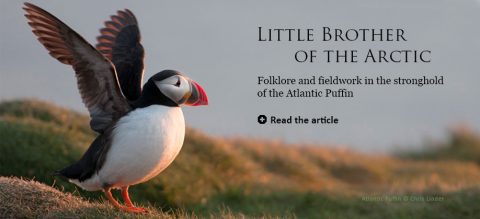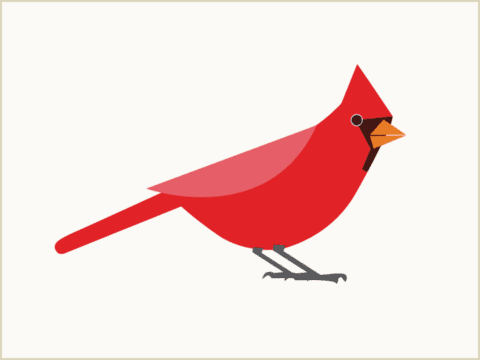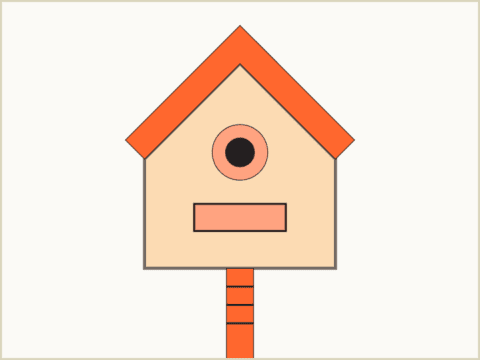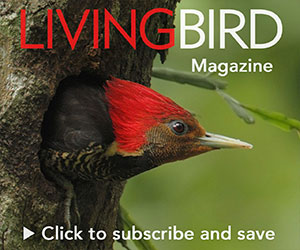A Master Set of Bird Sounds: Q&A with Matt Young
July 15, 2013UPDATE: In December 2020, Macaulay Library released the Cornell Guide to Bird Sounds: United States and Canada, an update to these sets. Learn more and purchase the guide.
It’s been nearly 10 years in the making: two amazing compilations of bird sounds, all high-quality recordings from the Cornell Lab of Ornithology’s Macaulay Library—the world’s largest archive of bird and animal sounds. These two downloadable collections have just been released and are available through the Macaulay Library’s online store. Cornell Lab biologist and sound engineer Matt Young shepherded this project to completion over the past five years. He recently talked to us about these new offerings and the people who made them possible.
—Pat Leonard
What are the names of these two collections and what’s the difference between them?
They’re called “The Cornell Guide to Bird Sounds: Master Set for North America” and “The Cornell Guide to Bird Sounds: Essential Set for North America.” The Master Set includes the vocal repertoire for 735 species of North American birds, totaling nearly 5,000 tracks. The Essential Set has more than 1,300 tracks, with the most commonly heard sounds for 727 species found in the United States and Canada.
Who is the Essential Set meant for?
It’s great for just about anyone, from long-time birders to those just beginning to explore bird sounds. We chose two or three of the most common vocalizations for each species, the ones you need to learn first if you’re hoping to identify birds by sound.
And the Master Set?
It contains much of the entire known vocal repertoire for 735 species. Nothing else even comes close. I’d love to see this set become the definitive North American sound-reference guide used by top-level birders, researchers, educators, and students to better understand bird communication. There are some recordings in the Master Set that I’m sure even the best birders have never heard.
You’ve been calling the release of these sets a “celebration.” How so?
It feels like a celebration—not just getting the collections out there, but recognizing that it never would have been possible without the dedication and hard work of so many contributors spanning 80 years. Some are professionals, but I’d say the majority are just everyday people who captured these sounds and sent them to us for preservation. This is really a celebration of their work. In fact, the entire Macaulay Library sound collection has been built on a collaboration with citizen sound recordists ever since it began in 1929.
What are some of your favorite examples of unique bird sounds in these collections?
I particularly like the harder to get or more unusual vocalizations, such as the dawn song of the Acadian Flycatcher or the flight song of the Yellow-breasted Chat. The American Woodcock display flight and some of the Rhinoceros Auklet tracks are great to listen to again and again. Even the diversity of songs given by common backyard birds, such as Black-capped Chickadee, Carolina Wren, and Tufted Titmouse, are fun learning experiences.
What’s the advantage of distributing these as download-only products?
To me, these are living, breathing productions. We’ll be updating the collections as new and better recordings are added to the archive. And we can fix things if listeners find a problem. We want to have an interactive relationship with the larger birding and ornithological communities so that they can help us make the collections better over time.
How will the download work?
After buying one of the sets from the Macaulay Library’s online store, you’ll receive the link to download the recordings to your iTunes. You’ll see a multi-columned list showing the bird name, the name of the audio file, and a description.
Will you be making additions to the Master Set?
We’d eventually like to include Hawaiian birds, which are not yet part of the Master Set. We’re also thinking of producing a set of night-flight migration calls, which are only a fraction of a second long but are identifiable. We’ll also be making updates, improving material, and adding vocalizations we don’t have now.

All About Birds
is a free resource
Available for everyone,
funded by donors like you
American Kestrel by Blair Dudeck / Macaulay Library



